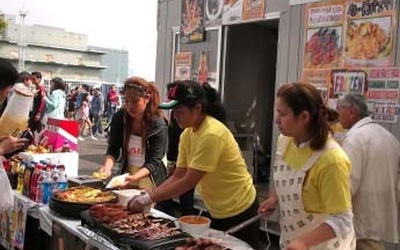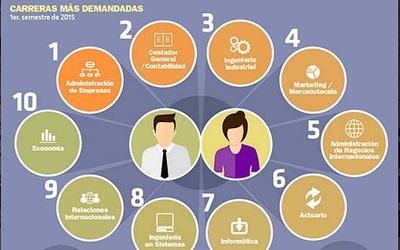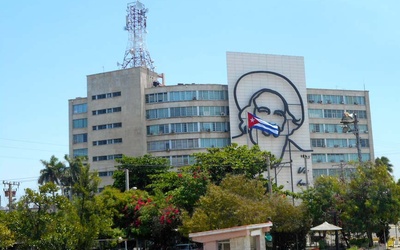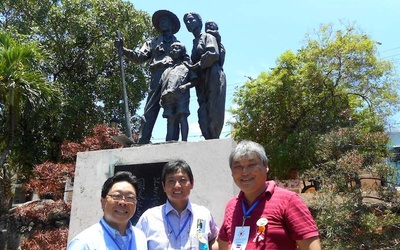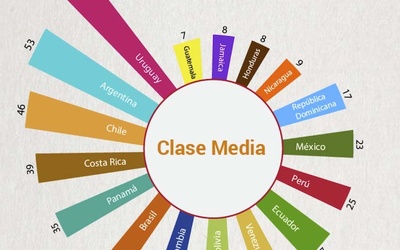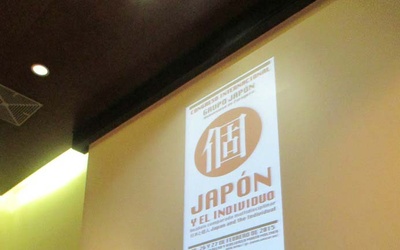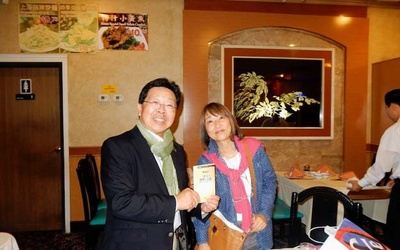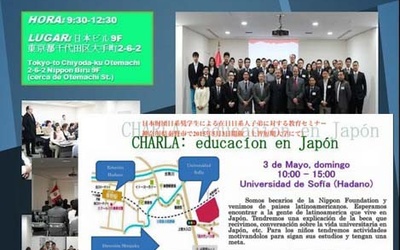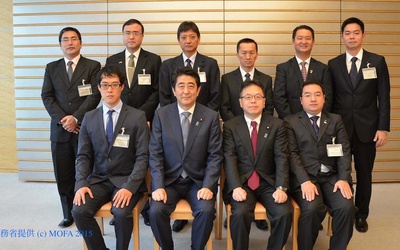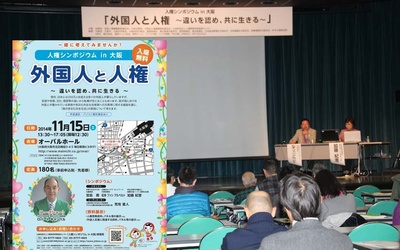
Alberto J. Matsumoto
@albertomatsumotoNisei Japanese-Argentine. In 1990, he came to Japan as a government-financed international student. He received a Master’s degree in Law from the Yokohama National University. In 1997, he established a translation company specialized in public relations and legal work. He was a court interpreter in district courts and family courts in Yokohama and Tokyo. He also works as a broadcast interpreter at NHK. He teaches the history of Japanese immigrants and the educational system in Japan to Nikkei trainees at JICA (Japan International Cooperation Agency). He also teaches Spanish at the University of Shizuoka and social economics and laws in Latin America at the Department of law at Dokkyo University. He gives lectures on multi-culturalism for foreign advisors. He has published books in Spanish on the themes of income tax and resident status. In Japanese, he has published “54 Chapters to Learn About Argentine” (Akashi Shoten), “Learn How to Speak Spanish in 30 Days” (Natsumesha) and others. http://www.ideamatsu.com
Updated June 2013
Stories from This Author
Japan's total fertility rate among foreign women is lower than expected
Feb. 24, 2016 • Alberto J. Matsumoto
Foreign immigration to combat declining birthrates: Is its effect in Japan limited? It is said that the problem of low birth rates and aging populations will become more serious in many developed countries, including Japan, and this trend is likely to be unavoidable even in Latin American countries, where the total fertility rate is often thought to be high. In the United States, when national elections come around, candidates emerge who emphasize the benefits of immigration, such as "immigrant women …
What should Japanese children living in Japan study?
Jan. 20, 2016 • Alberto J. Matsumoto
So far, I have written about the educational progression status of Japanese descendants and international students in Japan, the skills they are seeking in the labor market, and the hiring situation.1 Foreigners and children of people with foreign roots and their parents are interested in what the labor market in Japan or their home country expects and what skills it is looking for. At seminars for those wishing to enter higher education, I am often asked questions such as "What …
Japanese people in Cuba and their future challenges
Jan. 5, 2016 • Alberto J. Matsumoto
This was my first visit to Cuba, a Caribbean country. After participating in the Pan-American Japanese Convention in the Dominican Republic, I arrived in the capital, Havana, via Mexico. There are several direct flights a week from Santo Domingo, but they are quite expensive, so I took a little detour. Thanks to that, I was able to meet Cubans living in Mexico and other countries at Mexico City's international airport, and was able to gather quite a lot of useful …
Dominican second generation immigrants and COPANI 2015
Dec. 2, 2015 • Alberto J. Matsumoto
In August 2015, I visited the Dominican Republic for the first time for five days. I went to participate in the 18th Pan American Convention of Japanese descendants (COPANI) held in the capital, Santo Domingo, and as a result, I was able to deepen my interactions with Japanese descendants in the country. Several years ago, JICA Japanese descendants trainees started coming from the country, and I had become quite close with some of them, so I had been looking forward …
South America's economic downturn and future business environment
Nov. 18, 2015 • Alberto J. Matsumoto
Over the past decade or so, Latin America's high economic growth rates have been the focus of attention, and many Japanese workers living in Japan have returned home in anticipation of this situation. However, the economic downturn has worsened over the past two years, and the situation in Brazil, a major country, is particularly not looking good. However, many South American countries export and import goods, services, and energy to Brazil (Brazil, which has a large land area, produces electricity …
Visiting Spain and France: What is the foreign community like?
Oct. 21, 2015 • Alberto J. Matsumoto
At the end of February this year, I visited the University of Zaragoza in Spain to participate in an academic conference. The university has a "Japanese Studies Group" that focuses on law, literature, and other subjects, and is enthusiastically researching Japan. Many students have mastered the Japanese language, and there is also an exchange program with Japanese universities. The theme of the conference was "Japan and the Individual: Comparative Analysis Across Multiple Fields," and researchers and graduate students from universities …
Visit to Los Angeles and Japanese Americans
Aug. 13, 2015 • Alberto J. Matsumoto
In October 2014, I finally made the long-awaited trip to Los Angeles and had the chance to visit the Japanese American National Museum, which I have been a frequent visitor to for some time. This museum not only houses materials and exhibits related to Japanese Americans, but is also the largest museum for Japanese Americans, housing materials, columns, testimonies, photos, and videos on Japanese immigration to the Americas1 . Japanese immigration to America began in 1868 with the Hawaiian immigrants …
Increasing number of foreign students finding employment in Japan and challenges facing Japanese companies
July 28, 2015 • Alberto J. Matsumoto
As of 2014, the number of international students coming to Japan has increased by 80% compared to 10 years ago. At the time, students from Asian countries still accounted for over 90% of the total, but the number of students from China has increased dramatically during this period1. According to statistics from 2014, there were 44,970 international students enrolled in Japanese language institutions (80% were from China, Vietnam, and Nepal), and 139,185 were enrolled in universities and graduate schools (also …
The role and expectations of the next generation of Japanese American leaders
June 19, 2015 • Alberto J. Matsumoto
Nikkeijin basically refers to Japanese people who emigrated overseas before and after the war and their descendants1 . In recent years, the scope of Nikkeijin has expanded, with children who were born and raised in Europe, America, and Asian countries, regardless of whether they identify as Nikkeijin themselves. In South America, the achievements of immigrants who developed undeveloped land and were active in various fields, including agriculture, are great, and there is a view that their descendants, including their Nikkeijin, …
Foreigners and Human Rights: What I learned from participating in the Osaka Symposium
May 13, 2015 • Alberto J. Matsumoto
When you see a title like this, you might get the impression that the human rights of foreigners are being significantly violated in Japan, but as a country governed by the rule of law, Japan defines the rights and obligations of its citizens and foreigners, and with the exception of the right to vote and some restrictions on economic activity, foreigners have almost the same rights. Around the 1990s, when I first became involved in the issue of foreign workers, …

